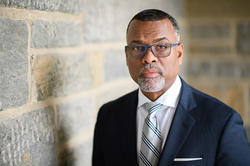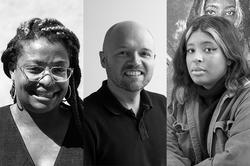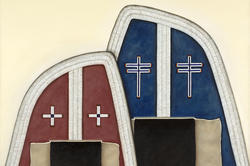2022 MLK Series keynote speaker Eddie Glaude, Jr. invokes legendary jazz musician John Coltrane in a powerful and forthright call to action.
Studio Museum Director Thelma Golden Honors Martin Luther King at RISD
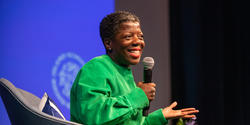
“I have come to experience that we live King’s legacy at the Studio Museum in Harlem every day,” said Director and Chief Curator Thelma Golden on January 18. “We imagine futures before they can be enacted, engaging [with the community] in ways that are profound.”
In introducing Golden, President Crystal Williams said, “We’re here to collectively think through the legacy of the MLK Series and how it is emblematic of RISD’s commitment to social equity and inclusion principles.” The dynamic conversation that followed between Golden and RISD Teaching and Research Fellow Nichole T. Rustin focused on the importance of creating space for Black artists, museum accessibility and the power of public art.
“We’re here to collectively think through the legacy of the MLK Series and how it is emblematic of RISD’s commitment to social equity and inclusion principles.”
It served as an anchor in a series of events celebrating the great civil rights leader. The RISD Museum offered free admission during the weekend, and printmaker Jacques Bidon led Print Power, a workshop focused on the role that posters can play in driving social activism. Food donation boxes were placed around campus as part of a weeklong food drive for Rhode Island Community Food Bank and the RISD Student Food Pantry, and community members were invited to write messages on peace flags, which were placed on RISD Beach to honor King.
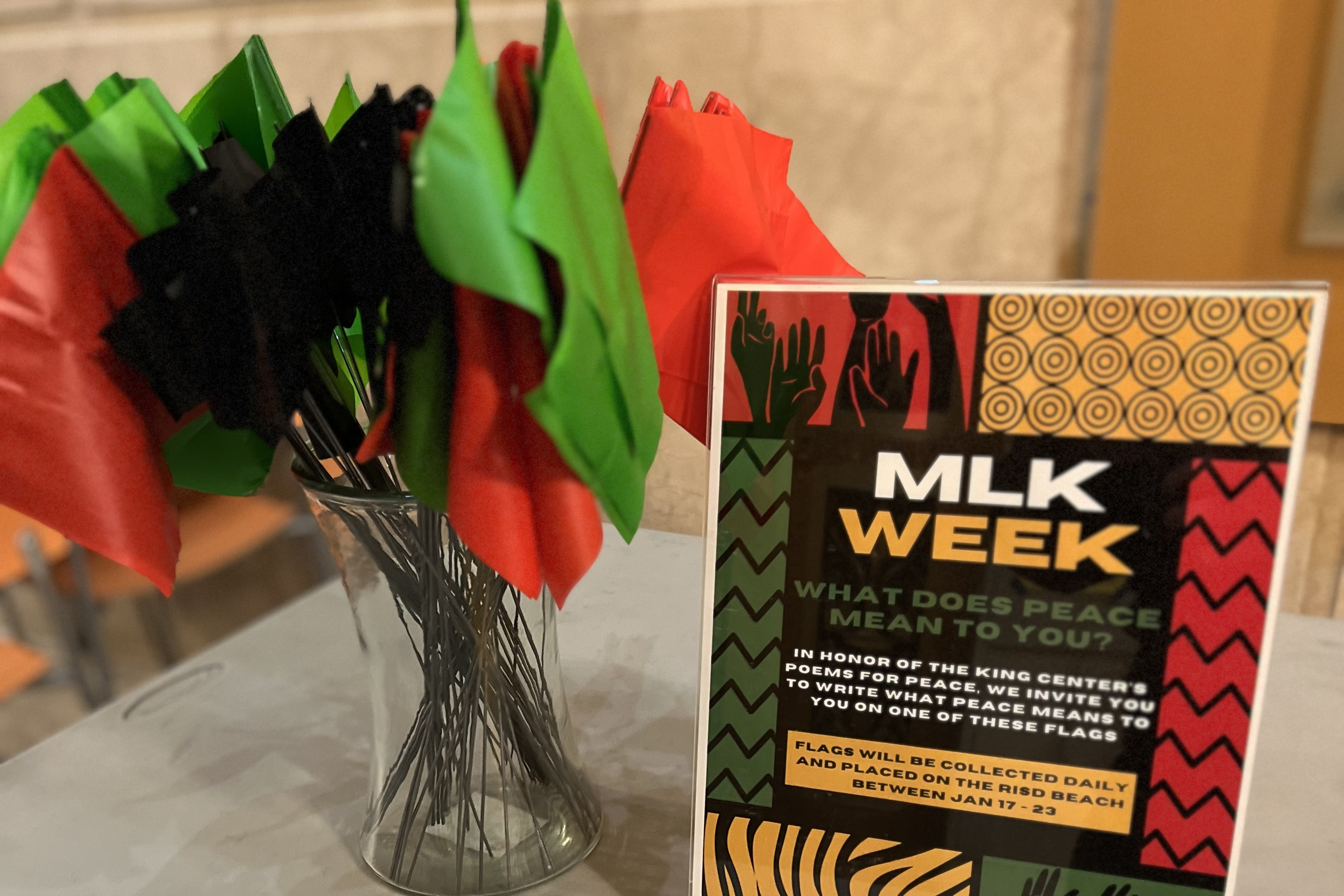
Golden referenced monuments to King during her talk, specifically The Embrace, a bronze sculpture by Hank Williams honoring King and his wife, Coretta Scott King, which was recently unveiled in Boston Common. Works like Thomas’, noted Golden, create important conversations. “We need to think not only about what public art is but also what monuments are,” she said. “Who is immortalized in our public spaces and why?”
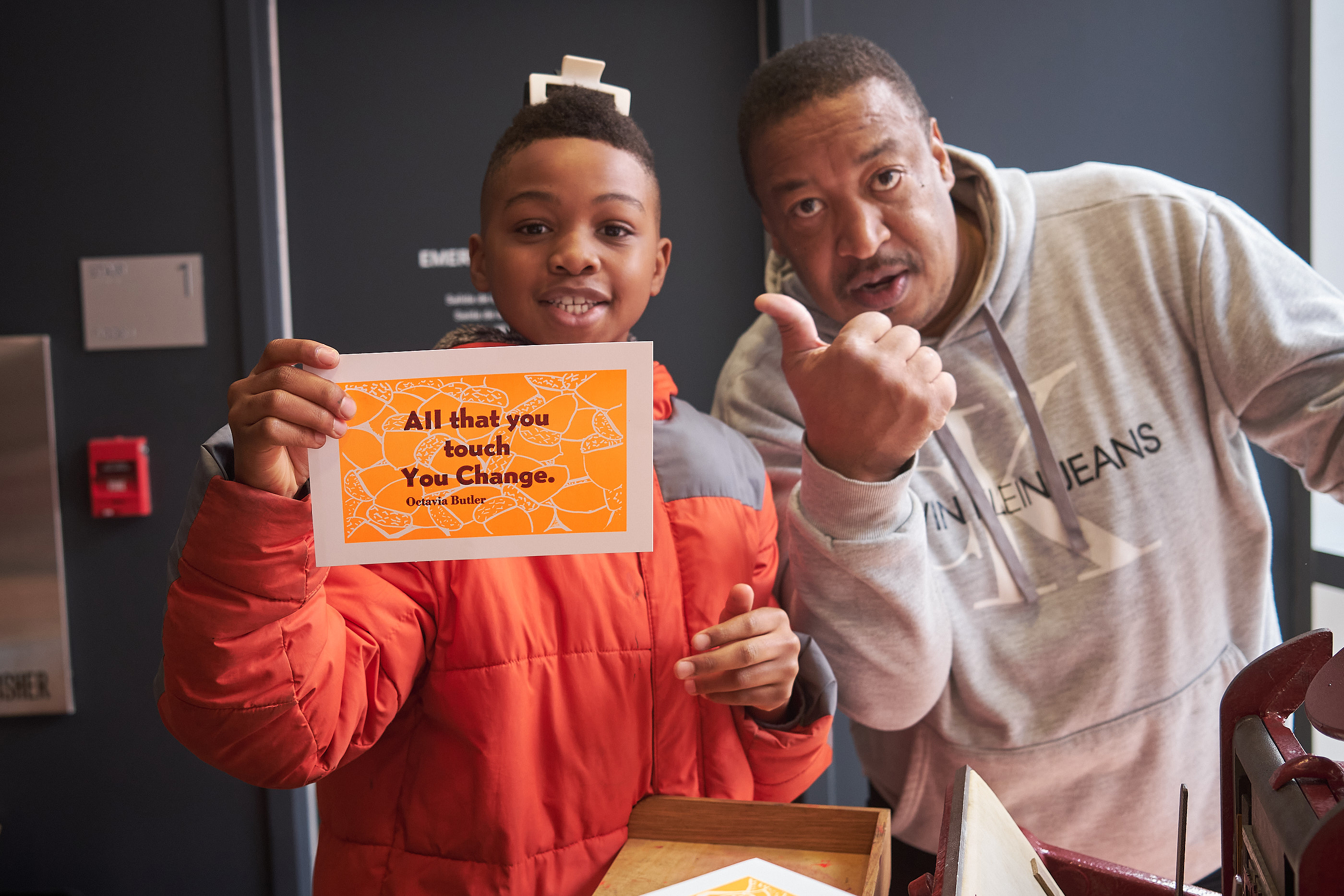
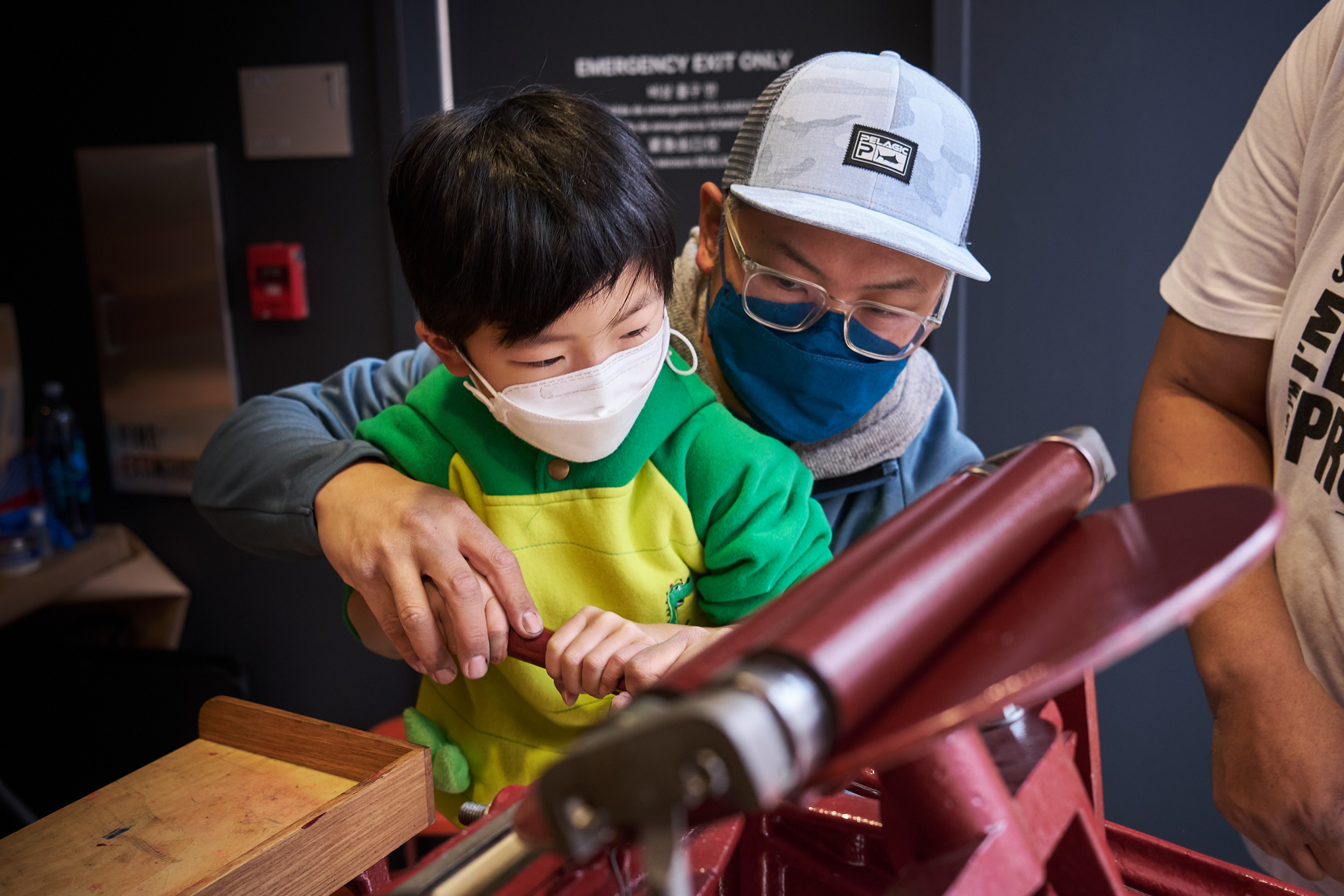
Golden then reflected on her long career, a path inspired by a passion that was ignited when she was a high school student in NYC. She began by working as an intern for the Studio Museum in 1987 and went on to curate for the Whitney Museum of American Art. There, she organized several exhibitions, including the 1993 Whitney Biennial and the memorable Black Male: Representations of Masculinity in American Art in 1995.
During the talk, Rustin brought out her prized copy of the 1995 publication that accompanied the Black Male exhibition, which she asked Golden to sign. “That exhibition lives on in the world today [because of artifacts like this],” Golden exclaimed. “It wouldn’t be possible without [RISD Graphic Design Professor] Bethany Johns’ well-designed, gorgeous work.” Johns was in the audience and surprised by the public acknowledgment.
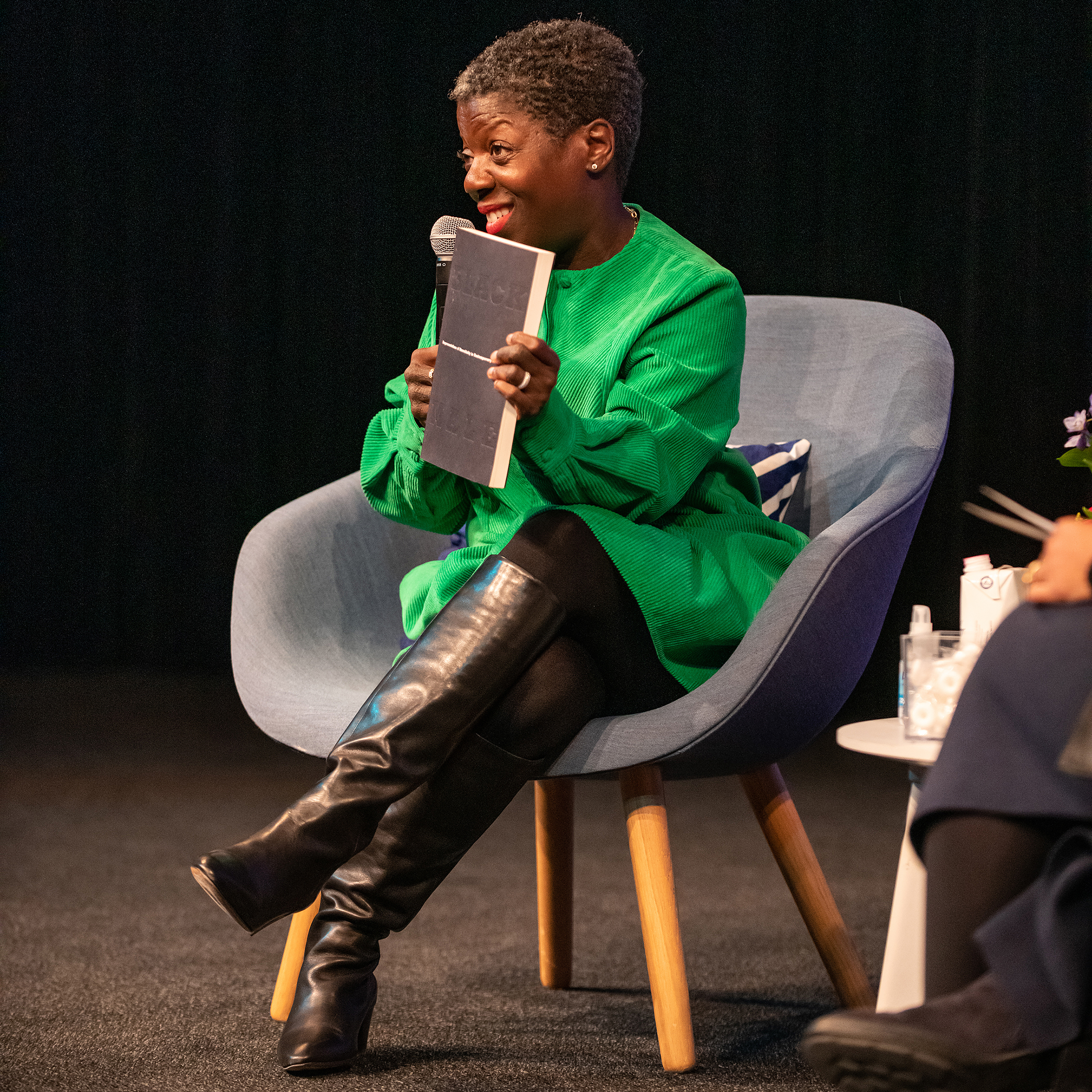
The Studio Museum defines itself as “the nexus for artists of African descent.” It was founded in 1968 out of necessity, as Golden explained, “a necessity that drove the institution’s trajectory” and directed its focus to support artists and the creative process. “Culturally specific institutional models, like ours, are very particular,” she noted. “Specificity is our power.”
“Culturally specific institutional models, like ours, are very particular. Specificity is our power.”
Throughout the talk, Golden emphasized the importance of creating space, which is exactly what the Studio Museum has done for the RISD community over the years. Mahler Ryder, a former RISD Illustration professor, was not only a founder of the museum but served as executive secretary in 1996. Many partook in the museum’s residency program, including alums Julie Mehretu MFA 97 PT/PR, Demetrius Oliver 98 PT, Qualeasha Wood 19 PR and Associate Professor of Painting Jennifer Packer. In addition, Katrina Carter MID 10 and RISD Museum Social Equity and Inclusion Program Specialist Kajette Solomon have both served as curatorial interns for the Studio Museum.
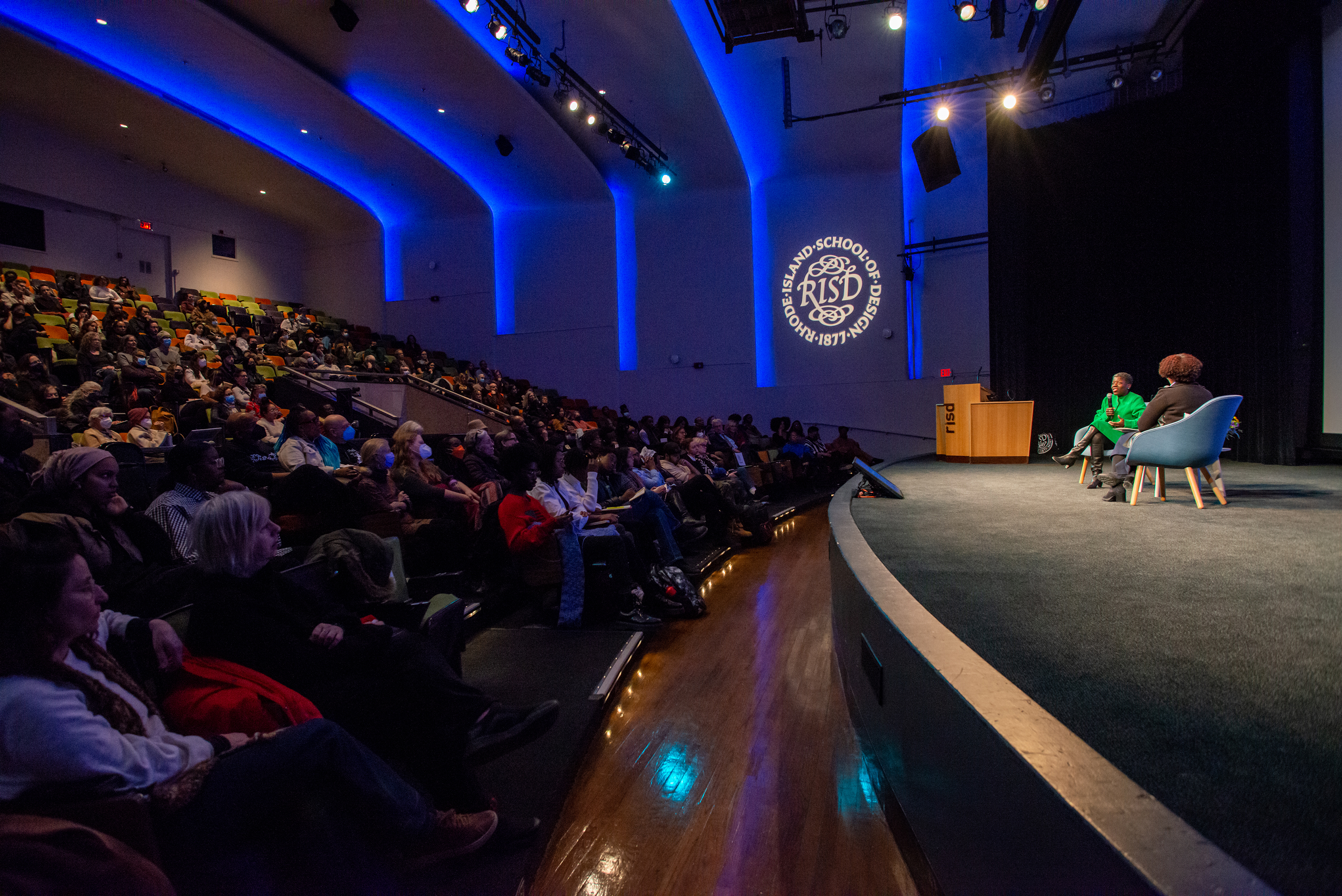
Although the museum is currently closed during construction of its new building designed by architect Sir David Adjaye, Golden and her team continue to create exhibitions and partner with other institutions to present them. They are also presenting more and more pieces in public spaces, including The Distance Within, a nine-foot bronze figure by British artist Thomas J. Price that stands in Harlem's Marcus Garvey Park. Golden reflected on the “psychic connections” between Harlem and the Brixton neighborhood of London, which “holds so much history for Afro-Caribbean Brits.”
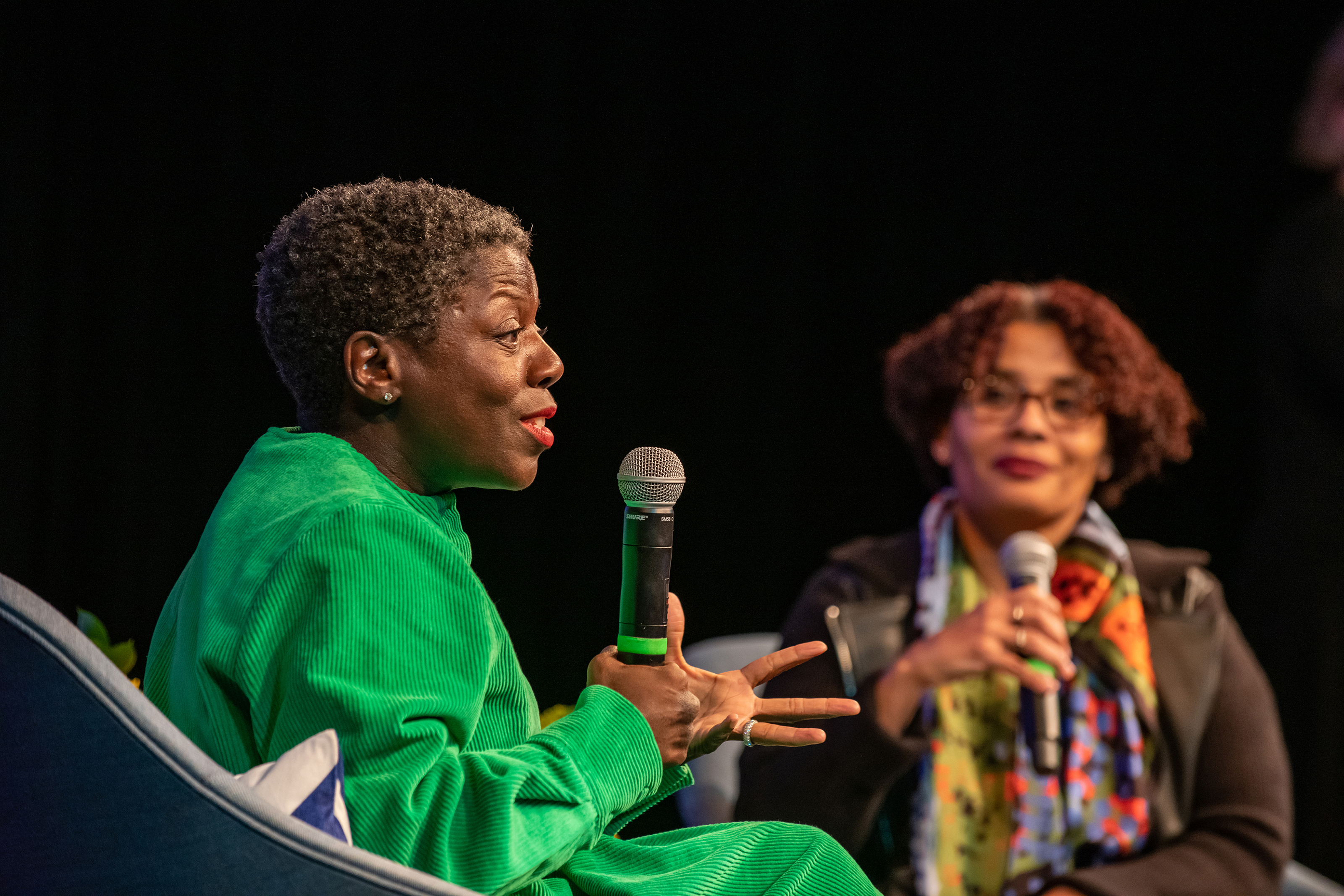
“Museums are changing radically, inspired by young radicals who are calling them to account and insisting that museums are fundamentally broken,” she added. “My mission is to determine what model will work for this generation. I’m excited to see what this form will take.”
“We must understand and acknowledge the complexities of our society. Art helps us reach into that complexity and imagine profound futures for humanity.”
Golden’s talk ended with a Q&A in which President Williams asked her to reflect on the intersections between King’s legacy, justice and art. That demand for social justice, Golden said, “influences how we walk through the world. But we must also understand and acknowledge the complexities of our society,” she noted. “Art helps us reach into that complexity and imagine profound futures for humanity.”
—Isabel Roberts / photos by Thad Russell and Erik Gould
Watch the recorded keynote lectures.
January 25, 2023
